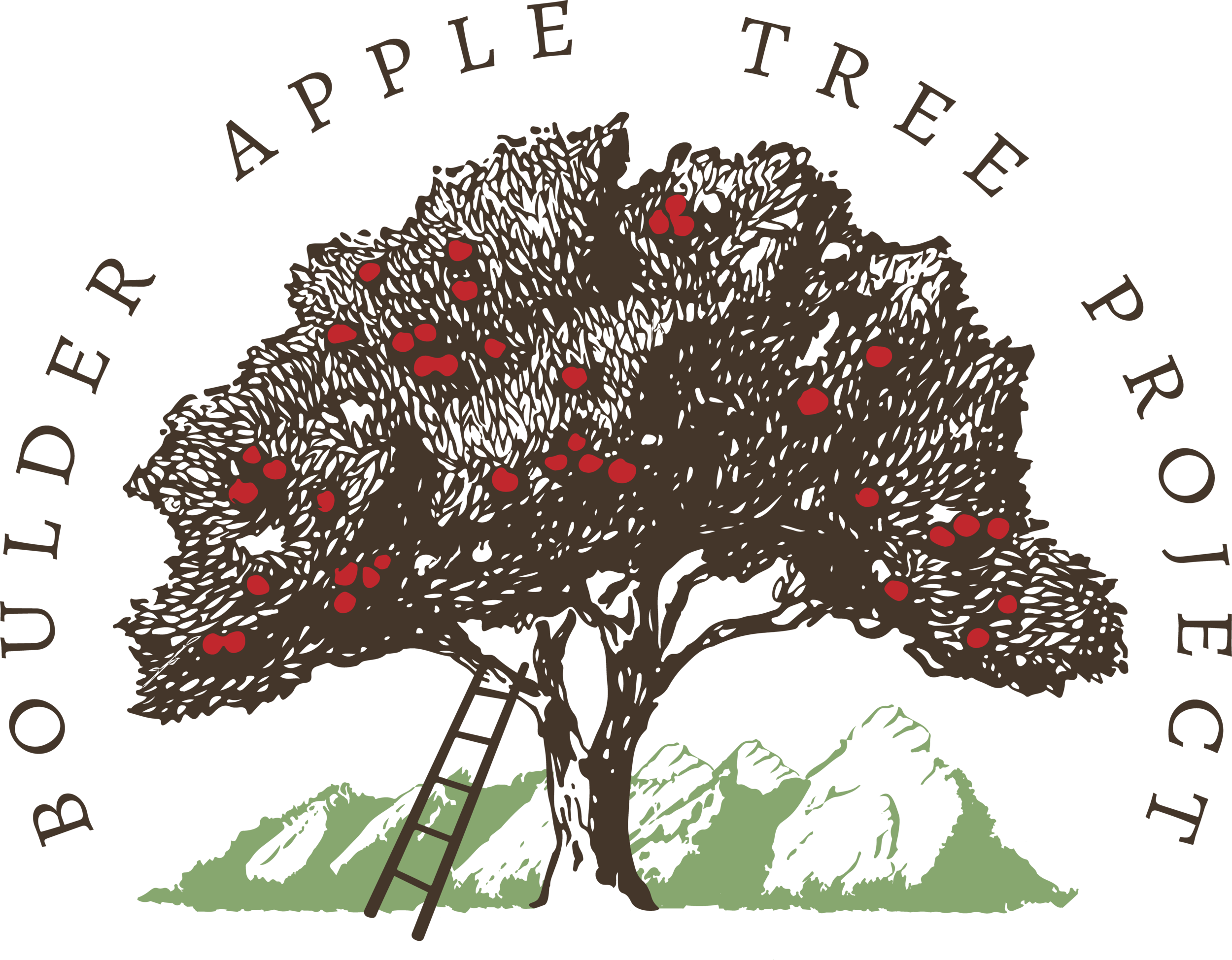Boulder Apple Tree Project featured in the Daily Camera's Booze Column
Booze column: Colorado's ciders are the real apple-pickin' deal
Syrup-sweet cider is so five years ago, especially when local apples are in full bloom
Story by Doug Brown for the Daily Camera
"They could be Virginia Hewes crabapples," said Dan Haykin. "If so, I'm giddy."
Dan Haykin, who, with his wife Talia, owns Haykin Family Cider in Aurora, was headed to a family's apple trees in Boulder while we yakked on the phone. Crabapple and "giddy" are not words accustomed to close proximity. But for cider makers like Haykin, crabapples offer so many sour reasons for celebration.
The hard-cider revolution first blossomed across Colorado about five years ago, and today it's in full flower. Some Front Range cideries import the vast majority of apples or juice and then ferment the fruit into booze. Others, like Haykin and Clear Fork Cider in Denver, try to use as much Colorado fruit as possible in their elixirs. Relying upon Colorado apples was tough last year, as a spring frost killed most blossoms statewide before they could mature.
But this year is different; with fruit packing the trees, branches are weighing down towards the ground. For cider makers who use Colorado fruit, the long season means hours of harvesting apples and hauling them away to cideries. Most of the state's commercial apple action takes place on the Western Slope, but in the early 1900s, settlers filled Boulder with orchards — and many of those trees still stand in backyards and through Open Space. The density of old trees spurred CU's department of ecology and evolutionary biology to launch the Boulder Apple Tree Project, an effort to explore Boulder's inventory of old apple trees.
Among other things, the program would like to "create preservation orchards where we take grafts from trees that are close to dying and let them live on in community orchards," said Deidre Marie Jaeger, a CU doctoral student working on the project.

